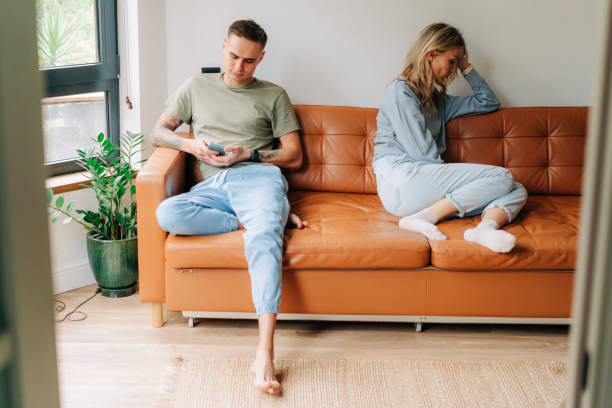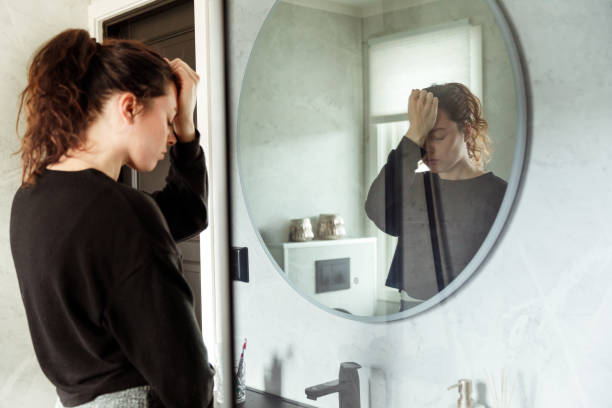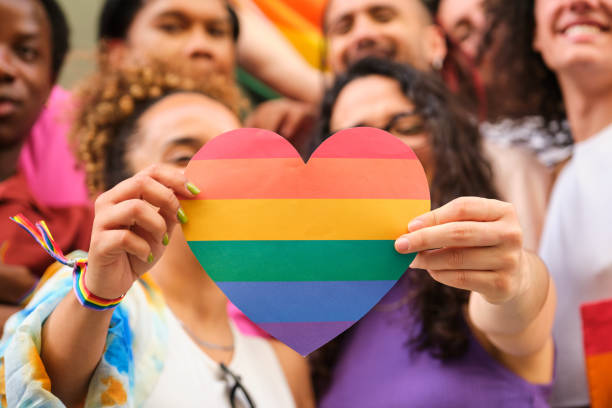
In a world where acceptance and understanding can still feel like rare commodities, the journey toward self-love is especially important for LGBTQ individuals. There is a lot to celebrate in the LGBTQ community, including priceless contributions to human rights, science and technology, and the arts. This journey is not just about feeling good about oneself; it’s about embracing one’s identity, overcoming societal biases, and finding peace within. Self-love is a powerful act of resistance against a world that often tries to define us by its own standards. For LGBTQ people, cultivating self-love is not just a personal endeavor, but a vital part of building a more inclusive and compassionate society.
Why Self-Love is Important
Self-love is the foundation of mental and emotional well-being. For LGBTQ individuals, this foundation can be crucial due to the unique challenges they may face, such as discrimination, social rejection, and internalized negative beliefs. The challenge of gender minority stress can take an immense toll on happiness and health. Embracing self-love allows LGBTQ people to validate their own experiences and emotions, fostering resilience in the face of adversity. It enables them to set healthy boundaries, pursue fulfilling relationships, and engage with the world authentically. Moreover, self-love empowers individuals to challenge the narratives that society imposes, creating space for personal growth and community connection.
Steps to Self-Love as an LGBTQ Person
- Acknowledge and Affirm Your Identity:
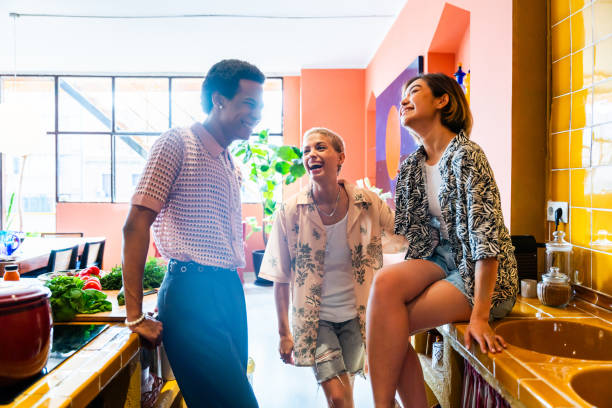
Self-affirmation involves understanding and accepting your sexual orientation and gender identity without judgment or shame. This is not a process that happens all at once, nor is it progress that happens in a straight line and then never has to be dealt with again. Self-affirmation is an ongoing task that evolves as you do. There may be times that challenge how you feel, and those are to be expected.
Overall, when you have done the work of self-acceptance, you are able to spend more time comfortable with who you are as opposed to trying to fight against it. When those setbacks occur and you experience feelings of resentment or frustration, you are able to go through them honestly, knowing that you have the tools to get back to feeling like yourself again.
Make acceptance easier on yourself by culling the folks that challenge your goals. Surround yourself with supportive people who respect your identity and encourage you to express yourself authentically. You may find that joining online or in-person LGBTQ groups enables you to understand your identity more thoroughly. Ultimately, we are the voice inside our head and it is up to us to do the work to accept ourselves, but we can choose to make that more or less challenging depending on our environment and social circle. Being among people who accept and affirm you as you are removes the chance that you’ll have to defend your right to exist, explain aspects of your life and/or experience, or be blindsided by upsetting commentary. Being able to learn from and listen to people who you feel understand who you are and what you are experiencing will not only reassure you, but can help you to unlock even more knowledge about how you identify. Over time and through conversations with others, you might adjust how you identify, or you might come to the realization that identifying yourself a certain way isn’t as important to you as other aspects of your lifestyle. You might learn things you haven’t been exposed to that resonate with you, and/or deepen your feeling of connection to the LGBTQ community and everyone that encapsulates.
While we wish it wasn’t so, it’s not always safe to be yourself out loud in this world. If and when you choose to keep your orientation or identity to yourself in the name of remaining safe, that is not a failure of self-acceptance. Whether it’s in small, private ways or bold, public ways, you get to choose how you acknowledge your identity, and to who. Some people naturally share more, some keep their thoughts and feelings closer to their chest. There is a difference between hiding yourself away and protecting yourself and your peace. Consider how you can be authentic in your life in a way that feels right for you. You may choose to surround yourself with symbols of the LGBTQ community at home, to connect with LGBTQ community organizations, to share your sexuality and/or gender identity with certain people, or to make a point to speak positive affirmations to yourself every day in the mirror.
Many of our patients who see us for LGBTQ therapy in Woodland Hills say that they struggle to find a balance between ignoring the negativity that is aimed at them and confronting it so that they can move forward. Every situation is going to be different, and the impact of certain comments or setbacks is going to vary depending on your individual circumstance. Having a foundation of self-acceptance means that, no matter how you respond in the moment, or what is triggered when you are faced with bigotry or callousness, you are able to return to a regulated state of confidence and self-assuredness. At times, it will take a little longer to get there.
- Challenge Negative Beliefs:
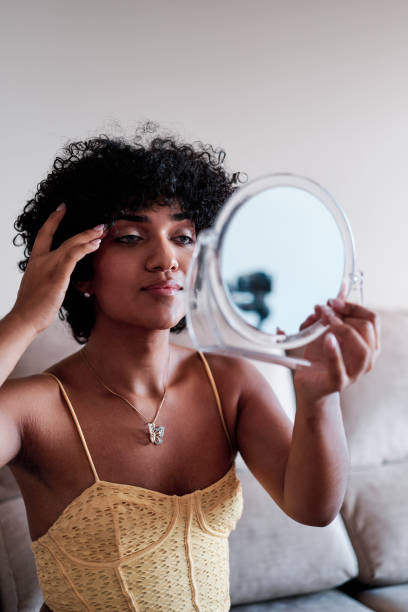
Practice self-compassion by treating yourself with kindness and understanding, especially in moments of vulnerability. Negative beliefs can be ingrained in us from a very young age, and take a huge toll on our mental health. You may experience a struggle in your mental health as you not only confront the messages you have received throughout your life, but also feel ashamed that you are letting these hateful ideologies get to you. You might find yourself thinking, “I know better; I hate that I let this get to me!” No matter how strong you feel in your feelings of worthiness and self-acceptance, living in our society and hearing anti-LGBTQ rhetoric can still be a strain on your mental health. That is why it is important to come up with a strategy to combat these negative beliefs.
Identify negative thought patterns and replace them with affirmations that celebrate your strengths and uniqueness. In our Woodland Hills LGBTQ therapy sessions, we address negative beliefs through a process of Cognitive Behavioral Therapy (CBT). CBT is about being aware of your thoughts and beliefs, understanding how they impact your behavior and the story you are telling yourself about your life, and re-writing that narrative so that you can take action in a way that aligns with your goals. CBT therapy for LGBTQ issues might include revisiting the information you absorbed about your sexuality or gender identity when you were growing up. Where did this information come from? Who around you shaped your perspective about your identity? Do the thoughts you feel seem like an accurate reflection of your situation? In some cases, you may find that you have negative thoughts based on lived experience; from there, the action you take is to focus on how capable you are of getting through those experiences. In other cases, you will know that what you’ve been told to think or taught to fear isn’t true, and approach those thoughts as beliefs to be undone and replaced with a more accurate story. Once thoughts are identified, we can determine how to challenge them. Sometimes, we meet these intrusive thoughts or feelings with affirmations about the opposite. Other times, we recognize that our behavior when we feel this way isn’t serving us, and we come up with new action to take instead. For example, if we tend to isolate in times of stress, we might instead decide to reach out to someone we trust and share that negative self-talk is causing us harm. Practicing these changed behaviors can take time and patience, but becomes easier the more you do it.
Part of challenging negative beliefs is confronting triggers and stressors. This is where it is important to know your boundaries. You may have boundaries with yourself, when it comes to certain thoughts and/or behaviors. You may have boundaries with others, in regards to what kind of language or behavior you find appropriate, with whom you surround yourself, or other guidelines in place to make sure that you are not inundated with anti-LGBTQ negativity. Through the process of determining from where your negative beliefs evolved, you may be confronted with tough realities about the people you love. Having a boundary about your community doesn’t necessarily mean that you will have to distance yourself from some people, but it’s also important to remember that it is a possibility. There are times when it is most beneficial to step back from people who are causing you harm. This isn’t necessarily a permanent change, though unfortunately for the LGBTQ community, we know that sometimes it is.
- Prioritize Self-Care and Well-being:

Prioritize activities that nourish your mind, body, and spirit. This could include physical exercise, meditation, creative pursuits, or spending time in nature. A solid self-care routine is the basis of being able to move forward from heartache, setbacks, loss, injustice, and more. It doesn’t protect you from troubles that you face, but it helps you to already be in a state of relative wellness when those hard times arise. Self-care is also how we replenish and refuel so that we are able to participate in community and be giving of ourselves with our family and friends. Remember, self-care is not selfish; it is a necessary step in maintaining your well-being and being able to support others.
A foundation of self-care is your basics: shelter, food, hydration, rest. The LGBTQ community is disproportionately impacted by issues such as housing and work instability. When we talk about these basic needs and your work toward meeting them, be kind to yourself about what your access is and how you are handling the barriers you might be facing. Hopefully, you have resources around you to protect and provide for you. No matter how temporary your housing is, take care to have personal items nearby that make you feel at home. A picture in a frame, a specific blanket, a childhood keepsake, or some other item that can be carried with you no matter where you go is a great place to start. Make yourself at home no matter where you are, in whatever way you can given your physical and financial ability. Remember to eat and drink water at regular intervals; the food you have access to and aren’t allergic to is a great starting place. Self-care isn’t about green juice, electrolytes in your water, and a white noise machine when you rest. It’s about providing for yourself as best as you can without looking at yourself with judgment.
When it comes to rest, there is physical rest and mental rest. Physical rest means sleep, but it also means resting your body, such as when you are decompressing from a long day, or dealing with an injury. Mental rest is about creating space for yourself to process your own emotions without being impacted by those around you, as well as carving out time to “turn your brain off”. Some folks do this by watching a comfort film, creating art, or moving their bodies. Whatever you choose to do to ensure that you are able to feel like your mind has been refreshed is a great idea. When we see other peoples’ examples of self-care, we can get hung up trying to model our own routine after them.
But the best self-care routine is one you will actually do. This means that if you hate running but enjoy walking, you should be walking. If you like going to the beach, but not in the middle of the day, don’t go in the middle of the day. If you prefer bananas to apples, eat bananas. These small choices may not seem like empowerment, but they are. They are about you cultivating what works best for you.
Set boundaries to protect your mental health, and don’t hesitate to seek professional help if needed. As an LGBTQ counselor in Woodland Hills, I see the benefit for those who attend in-person or online LGBTQ therapy. Therapy is a safe space in which to express your emotions, unpack your thoughts and behaviors, and gain perspective about incidents and patterns that occur in your life.
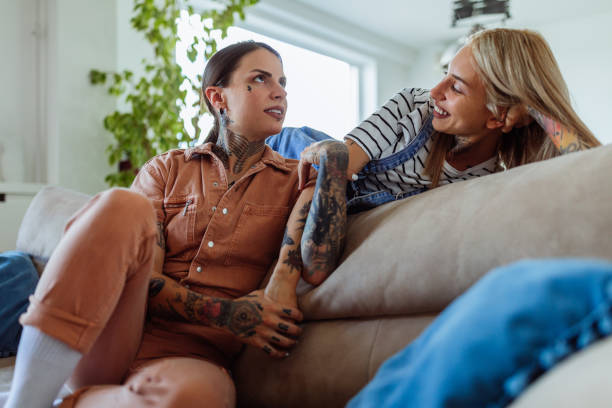
Self-advocacy can be a tricky balancing act, one that takes a lot out of you. When we celebrate Pride, we bear in mind that it started as a protest. When we experience joy and freedom and self-love, we also know that we have to be aware of the danger of living honestly. When we experience pain, we have to remember that there is beauty and happiness and strength in the LGBTQ community. Determining how to frame certain events can depend on factors such as what else is going on in your life, who surrounds you, and how you interact with systems of privilege. This is why a consistent, resilient heartbeat of love for yourself is so vital. Self-love is about knowing that you have value simply because you exist, that you are as deserving of good things as anyone else might be.
Therapy for Young Adults in Woodland Hills
In our therapy tailored for young adults, our focus is on understanding the true you–not the person your parents or society expect you to be. We’re here to explore your feelings, thoughts, the worries that keep you awake at night, and your personal goals. Starting Therapy For Young Adults in Woodland Hills, you can equip you with the tools to build resilience and foster genuine connections with yourself and others.
Contact us today for your complimentary 20-minute phone consultation with our Admin Team today!

